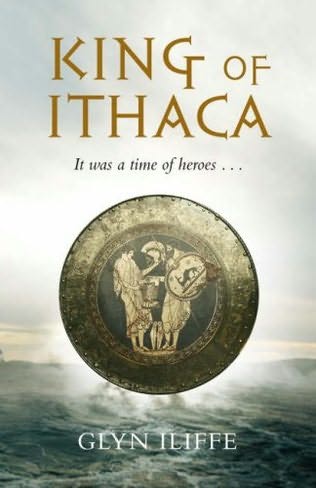King of Ithaca
by by Glyn Iliffe

Reviewed by Coral
After a rebellion overthrows his king, Eperitus, unable to follow-up the usurper, is exiled from Alybas. Hoping the gods will provide him insights on what to do, he travels to consul the Pythian Oracle. Along the way he comes to the aid of fellow travellers also seeking the Oracleís help.
Odysseus, meanwhile, has come to learn how he can help his father avert a possible rebellion. He learns that he must marry a Spartan princess and, though he will not be there when his country needs him, he will be King of Ithaca and claim glory, though it will take him far from home.
Returning to Ithaca, Odysseus and his men learn that Tyndareus of Sparta has called for suitors from all of Greece to court his daughter Helen. Is she the Spartan wife the oracle saw for Odysseus? And, will leaving to pay court to her, led to the downfall of Odysseusí father?
I didnít really enjoy this book.
I will fully admit that I have strong opinions/biases about what I like and donít like in historical fiction (and, really, in all books) that I read. It may sound weird when dealing with stories like the Trojan War, but I prefer those that have a more historical setting and less of a fantastical one. So I didnít like that the goddesses like Athena were actual characters who came to speak to Odysseus, or that Helen is really Zeusí daughter, or that there are really centaurs and other mythical monsters that have to be conquered.
I didnít like the characterization of either Helen or Agamemnon, who are, in my opinion, two of the harder characters to get right. Helen came off as kind of a spoiled brat, who elevates herself over others because of her divine father. I had some hopes for Agamemnon in early scenes, where he seems to want to finally have peace amongst the Greek cities. But the general narrative of him being a megalomaniac who everyone despises made me realize that this was going to be like most other versions of Agamemnon.
Odysseus really didnít endear himself to me either, which is a problem with one of the main characters.
I donít think that the character of Eperitus is based on a character from Greek mythology. (Heís not a name I remember and the searches I did only returned links for this trilogy.) Because of this heís also the type of character that I dislike: an original character shoe-horned into an established story, who becomes the centre of importance. Eperitus saves Odysseusí life, is great enough that Athena herself visits him, becomes Helenís confidante and Clytemnestra.
I probably wonít end up reading the other two books in the series. Although there is a kind of throwaway line about Patroclus that gave me a small sliver of hope that when we meet Achilles (in book 2) that they might be lovers.
Also, again, what is the point of a map of the area that doesnít include all of the cities/places actually mentioned in the book? I have no idea where Eperitusí home, Alybas, is located, as it is not on the map. A more minor omission is city/place where the mercenaries that are featured heavily in the book come from.
Grade: D